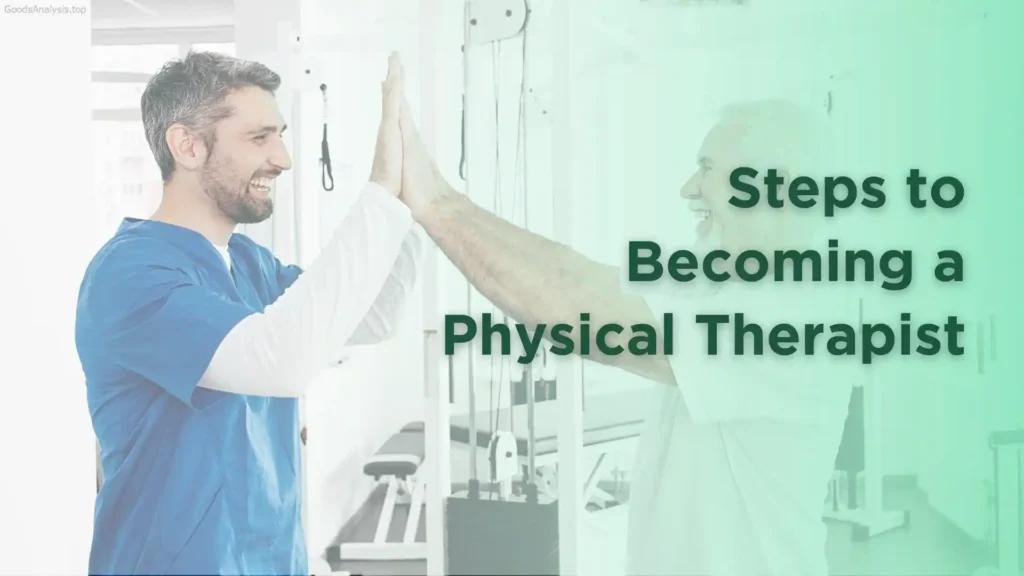Becoming a therapist is a rewarding journey, one that requires dedication, empathy, and a solid educational foundation. Whether you want to help individuals through their emotional struggles, offer couples counseling, or specialize in family therapy, the path is generally similar, with some variations depending on the type of therapy you want to practice and where you plan to work. If you are considering this career, or are simply curious about what it takes, this guide will provide you with a thorough, practical look at the process.
1. Understand What a Therapist Does
Before diving into the “how,” it’s important to first understand what being a therapist involves. A therapist provides mental health care, often in the form of psychotherapy. Therapists help individuals, couples, and families cope with life’s challenges, ranging from stress and anxiety to trauma, addiction, and depression.
There are various types of therapists, including:
- Clinical Psychologists: They hold a doctorate in psychology (Ph.D. or Psy.D.) and offer therapy and psychological testing.
- Marriage and Family Therapists (MFTs): They specialize in working with families, couples, and individuals to address relational dynamics.
- Licensed Professional Counselors (LPCs): These therapists may have a master’s degree in counseling or a related field and work with a variety of issues like anxiety, depression, and grief.
- Social Workers (LCSWs): Licensed Clinical Social Workers offer therapy and are trained in a variety of counseling techniques, often working with specific populations like children or those facing poverty or abuse.
- Addiction Counselors: These therapists specialize in helping people with substance use disorders and addiction issues.
Each of these fields requires different levels of education and specialized training. It’s essential to decide which path resonates with you early on to tailor your studies and training accordingly.
2. Educational Pathways
Step 1: Obtain a Bachelor’s Degree
The first step toward becoming a therapist is earning a bachelor’s degree. While your degree doesn’t have to be in psychology, sociology, or another mental health field, these areas of study are often helpful. Many people start with a degree in psychology, but any degree that offers insight into human behavior and the social sciences can be a good foundation. Courses in human development, abnormal psychology, and counseling basics will be especially useful.
Step 2: Pursue Graduate-Level Education
Once you have your bachelor’s, the next step is earning a master’s or doctoral degree. Here’s where the details diverge depending on the type of therapist you want to become.
- Master’s Degree: A Master’s in Social Work (MSW), Master’s in Counseling, or Master’s in Marriage and Family Therapy (MFT) are all common choices. This typically takes two years to complete and provides clinical training and supervised internships.
- Doctoral Degree: If you want to become a clinical psychologist, you will need to pursue a doctoral degree (Ph.D. or Psy.D.). Doctoral programs take longer (typically 5–7 years), as they involve comprehensive training in theory, practice, and research.
Step 3: Complete Clinical Hours (Internships)
Whether you pursue a master’s or a doctorate, the next essential step is completing clinical hours under supervision. These are hands-on hours where you work directly with clients while being supervised by a licensed professional. Most states require between 2,000 and 4,000 hours of clinical work before you can apply for licensure.
Step 4: Get Licensed
Therapists must hold a license to practice, and requirements vary by state and country. Common licenses include:
- Licensed Professional Counselor (LPC)
- Licensed Marriage and Family Therapist (LMFT)
- Licensed Clinical Social Worker (LCSW)
- Licensed Psychologist (LP)
To earn your license, you will typically need to pass a national or state exam and provide proof of your clinical hours. For example, the National Counselor Examination (NCE) is commonly required for LPCs, while psychologists may need to take the Examination for Professional Practice in Psychology (EPPP).
3. Specializations and Continuing Education
After becoming licensed, you can choose to specialize in specific areas of therapy, such as:
- Cognitive Behavioral Therapy (CBT)
- Psychodynamic Therapy
- Trauma-Informed Care
- Child and Adolescent Therapy
- Substance Use Disorder Counseling

Specializing often requires additional certifications or training programs. It’s also important to note that as a licensed therapist, you’ll be required to engage in continuing education to maintain your license and stay up to date with the latest therapeutic practices and research.
4. The Challenges You’ll Face
While becoming a therapist is a noble pursuit, it comes with its challenges. Let’s take a moment to recognize a few of the hurdles you might face along the way and how to address them:
- Emotional Strain: Working with people who are suffering can take an emotional toll. Therapists often experience burnout or compassion fatigue, particularly when dealing with trauma survivors. It’s crucial to maintain a healthy work-life balance and seek supervision or peer support when needed. Supervision isn’t just for the early years; experienced therapists benefit from it too.
- Long Path to Licensure: The road to becoming a licensed therapist is lengthy and filled with exams, clinical hours, and continuing education. It can feel like a marathon rather than a sprint. But the reward at the end is worth it.
- Financial Cost of Education: Higher education can be expensive. Graduate programs, especially doctoral ones, can result in significant student debt. Scholarships, grants, and loan repayment programs (especially those working in underserved areas) can help alleviate some of this burden.
- Client Resistance: Not every client is open to therapy, and it can be tough when a client is not fully invested in the process. Therapists must be patient and creative in their approaches, and sometimes refer clients to different professionals if needed.
5. The Rewarding Aspects of Being a Therapist
Despite the challenges, the rewards of being a therapist are plentiful:
- Helping Others: The most obvious reward is the opportunity to make a significant positive impact on people’s lives. Whether you’re helping someone recover from trauma, manage anxiety, or improve their relationships, the work is deeply fulfilling.
- Intellectual Growth: Therapists are life-long learners. The field of psychology is constantly evolving, and as a therapist, you’ll be in the unique position of exploring new theories, therapies, and techniques.
- Job Flexibility: Depending on your specialization, therapists can work in private practice, hospitals, schools, or community centers. Many therapists also have the option to work remotely or set their own hours, providing a level of flexibility that many other professions don’t offer.
6. What Therapists Say About the Profession
To give you a sense of what it’s really like to be a therapist, let’s hear from a few different professionals around the world:
- Amanda, 38, Licensed Marriage and Family Therapist, USA: “The best part of my job is seeing the ‘aha’ moment when clients make a breakthrough. But it’s not always easy. Sometimes clients resist change or drop out of therapy, which can be frustrating. Still, the positive impact keeps me going.”
- Pedro, 52, Clinical Psychologist, Spain: “In my country, there’s still some stigma about therapy, so I spend a lot of time educating clients about what therapy is really about. But when you see someone make progress, it makes it all worthwhile.”
- Maya, 45, Licensed Social Worker, India: “Working in rural areas, I’ve faced challenges with resources, but the gratitude from people who never had access to therapy before makes it all worth it. It’s an incredibly humbling job.”
- Sam, 30, Addiction Counselor, UK: “I work with people fighting addiction, and it’s tough, emotionally draining work. But when someone turns their life around, it’s the most rewarding feeling.”
- Olivia, 26, Clinical Psychologist, Canada: “I’ve only been practicing for a few years, but I’m already seeing how essential mental health care is, especially after the pandemic. People are more open to therapy than ever, and I love being a part of that change.”
Final Thoughts
Becoming a therapist is not for the faint of heart, but if you have a passion for helping people, a willingness to learn, and a strong emotional resilience, it can be one of the most fulfilling careers out there. It requires hard work, patience, and a commitment to personal and professional growth. But in return, you’ll have the privilege of supporting others through some of their most difficult times—and that’s a truly meaningful endeavor.
So, whether you’re just starting your journey or thinking about making the leap, know this: you’re choosing a path that not only helps others but has the potential to transform your own life too.
If you have any questions about specific paths, training programs, or licensing details, feel free to ask. I’m here to help you every step of the way!









